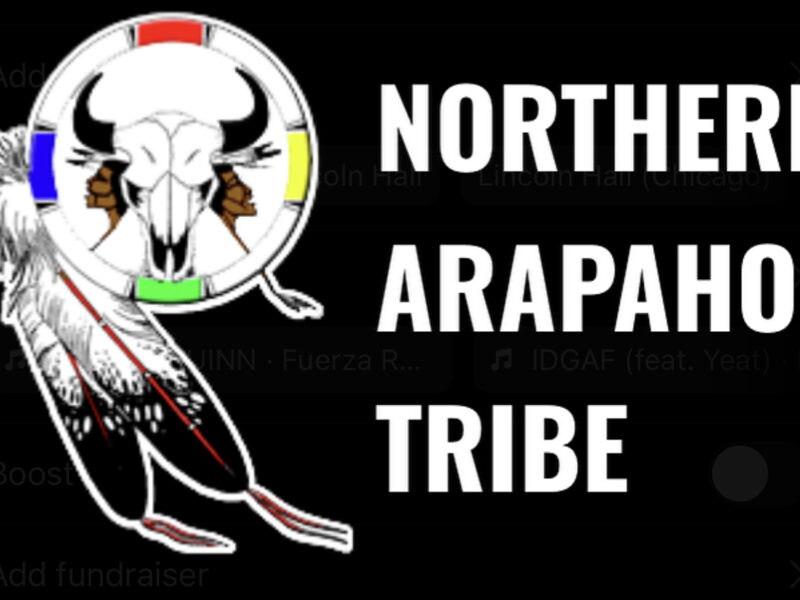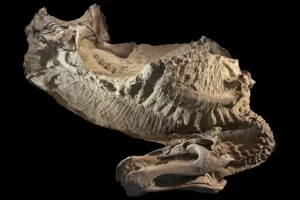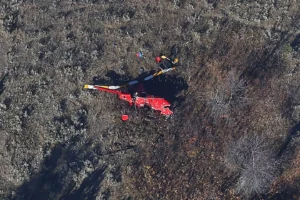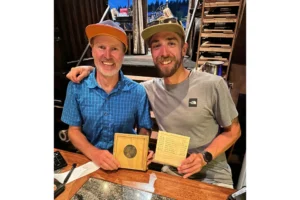Wyoming Supreme Court Affirms Former Attorneys Didn’t Steal Tribal Funds
Northern Arapaho Tribe loses appeal alleging Lander law firm abused, defrauded legal trust
- Published In: Other News & Features
- Last Updated: Nov 05, 2023

Pictured above is the Northern Arapaho Tribe’s logo. The tribe filed a lawsuit in district court against the law firm Baldwin, Crocker and Rudd, P.C. (BCR), claiming their former attorneys misappropriated millions of dollars of tribal funds. (Courtesy photo from the Northern Arapaho Tribe’s website)
By Shen Wu Tan
Special to the Wyoming Truth
The Wyoming Supreme Court upheld a jury’s verdict that found former attorneys for the Northern Arapaho Tribe and the Wind River Hotel and Casino didn’t steal or convert any tribal funds.
The tribe asserted in a lawsuit that Baldwin, Crocker and Rudd, P.C. (BCR) in Lander possessed over $1 million of tribal funds from their trust account and were legally required to replenish that amount.
“The Tribe contends as a ‘trustee,’ BCR should be required to justify every penny it removed from the trust account rather than the Tribe having to prove BCR converted or stole the funds,” wrote Justice John G. Fenn in the court’s case opinion, which was released last week. “The Tribe’s argument is misplaced.”
BCR lawyers billed the tribe millions of dollars while serving as its counsel from 1988 to 2019. The attorneys sent detailed bills that contained confidential information, such as the names of families receiving legal services, to the tribe’s finance office.
The Northern Arapaho Business Council (NABC) later asked the lawyers to provide simplified monthly billing summaries, rather than detailed ones, showing lump sums for fees, according to the opinion. However, detailed billing statements were still available for review at the law firm’s offices and sometimes emailed to the council.
The tribe paid BCR’s fees from its general fund until 2017 and then opted to pay from the law firm’s trust account.
Conflicts of interest, broken trust

Over the years, the Northern Arapaho tribe occasionally sought other counsel. In 2018, the NABC chairman hired Kilpatrick, Townsend and Stockton, LLP (KTS) based in Washington, D.C. for lobbying work, and in February 2019, the tribe asked KTS to evaluate casino CEO Jim Conrad.
In April of that year, KTS lawyers contacted BCR attorneys to schedule an interview about Conrad’s performance and gather documents. BCR informed KTS that they needed to comply with the conflicts of interest provision outlined in a 2002 policy, to which KTS replied they had performed their own conflicts check before agreeing to represent the tribe, according to the court opinion.
BCR then investigated KTS and discovered potential conflicts, including a connection to a named defendant in an opioid case the Northern Arapaho Tribe had filed. BCR lawyers discussed these conflicts with business council members, but KTS ended up completing the evaluation.
The business council was reportedly surprised by the “pushback” of having KTS conduct the evaluation, and several members felt BCR sided with Conrad rather than following the council’s wishes. The business council began questioning whether BCR had the tribe’s best interests in mind and voted to terminate the attorneys’ contract in June 2019, the judge’s opinion states. The council also passed a resolution requiring BCR to return all tribal funds and documents.
BCR then transferred over $929,000 from the trust account to the tribe’s and casino’s accounts under the supervision of David Clark, who provided financial services to the tribe. On June 18, 2019, Clark confirmed all trust account funds had been returned to the tribe.
At a public meeting later that year, some people, including a KTS lawyer, accused BCR of stealing tribal funds. The general council then voted to ban BCR from working for the tribe.
On July 29, 2019, the tribe sued BCR in Fremont County District Court, seeking a return of tribal documents and funds.
The tribe asserted BCR lawyers misappropriated millions in fees and failed to justify their fees, as stated in the court’s opinion. Former and current business council members said they reviewed billing summaries and had “lingering questions” about the tasks the law firm had completed due to the broad nature of the billing entries.
In defense, the BCR attorneys said they updated the tribe about the work performed in other ways and presented evidence that the tribe didn’t ask the firm to resume sending detailed bills, alter the entries’ formatting or offer more details about their work. The firm also argued KTS made defamatory and false statements about BCR to obtain the tribe’s legal work.
The jury returned a verdict in favor of BCR after five days of testimony.
‘Racially charged evidence’
The tribe filed an appeal after the verdict, arguing in part that the district court erroneously admitted “racially charged evidence” into trial, per the court’s opinion.
The Northern Arapaho Tribe asserted BCR used this evidence to bias the jury against the tribe, positioning themselves as the “white lawyers” fighting the “Native lawyers” of KTS.
The evidence attempted “to encourage the jury to sympathize with the white lawyers [BCR] and decide against the Tribe,” the tribe argued. “The result was a racially motivated trial that prejudiced the Tribe.”
BCR lawyers referred to race in their opening statement at the trial, noting KTS lawyers pointed out they’re Native American and people should only trust them. BCR lawyers also mentioned race in their closing argument, reminding the jury about concerns over KTS’ attorneys for disparaging them and trying to get “rid of all the white guys,” the opinion states.
The Wyoming Supreme Court acknowledged in its opinion that there was no “proper purpose” for the evidence, but said it was used to criticize KTS, not the tribe.
“Given the evidence BCR presented at trial, which had nothing to do with KTS or the racially charged evidence, and that the Tribe failed to present evidence BCR received payment for work that was not performed, there is not a reasonable probability the outcome would have been more favorable for the Tribe…”













